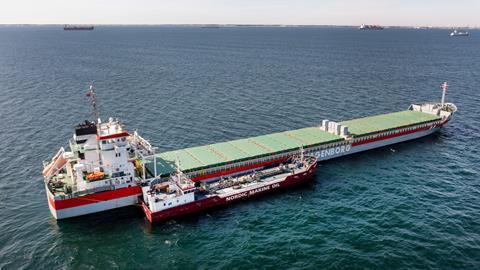One of Wagenborg’s F-class vessels has completed its first transatlantic voyage using co-processed marine fuel, resulting in a 68 percent reduction of greenhouse gas emissions (GHG) for that specific voyage.

The shipment – requested by one of Wagenborg’s customers – illustrated the ease to switch to this type of a drop-in biofuel, said the company.
“We consider the recent use of biofuels as a first step in short-term success when it comes to CO2 reduction. Significant CO2 reductions can only be achieved when actions are taken in the entire supply chain. That is why we continue to actively discuss the possibility of biofuels with our customers,” it added.
The company’s entire fleet of multipurpose vessels is able to bunker the ISO 8217 compliant co-processed marine fuel, since no investment in onboard equipment is required to use this sustainable drop-in marine fuel. The fuel is produced using ISCC PLUS certified raw materials, such as vegetable oils, used cooking oil, or animal fat, which may reduce GHG emissions up to 80 percent over the lifecycle, when compared to fossil fuels.
Wagenborg said that it believes that the use of biofules fits “perfectly” with its sustainability strategy. “So far, our fuel efficiency programme and the first use of biofuels resulted in a CO2 reduction of about 26 percent compared to the year 2008.”
HLPFI reported last year that biofuels are gaining a foothold in the multipurpose and heavy lift shipping industry, with various trials under way at a number of carriers.
















